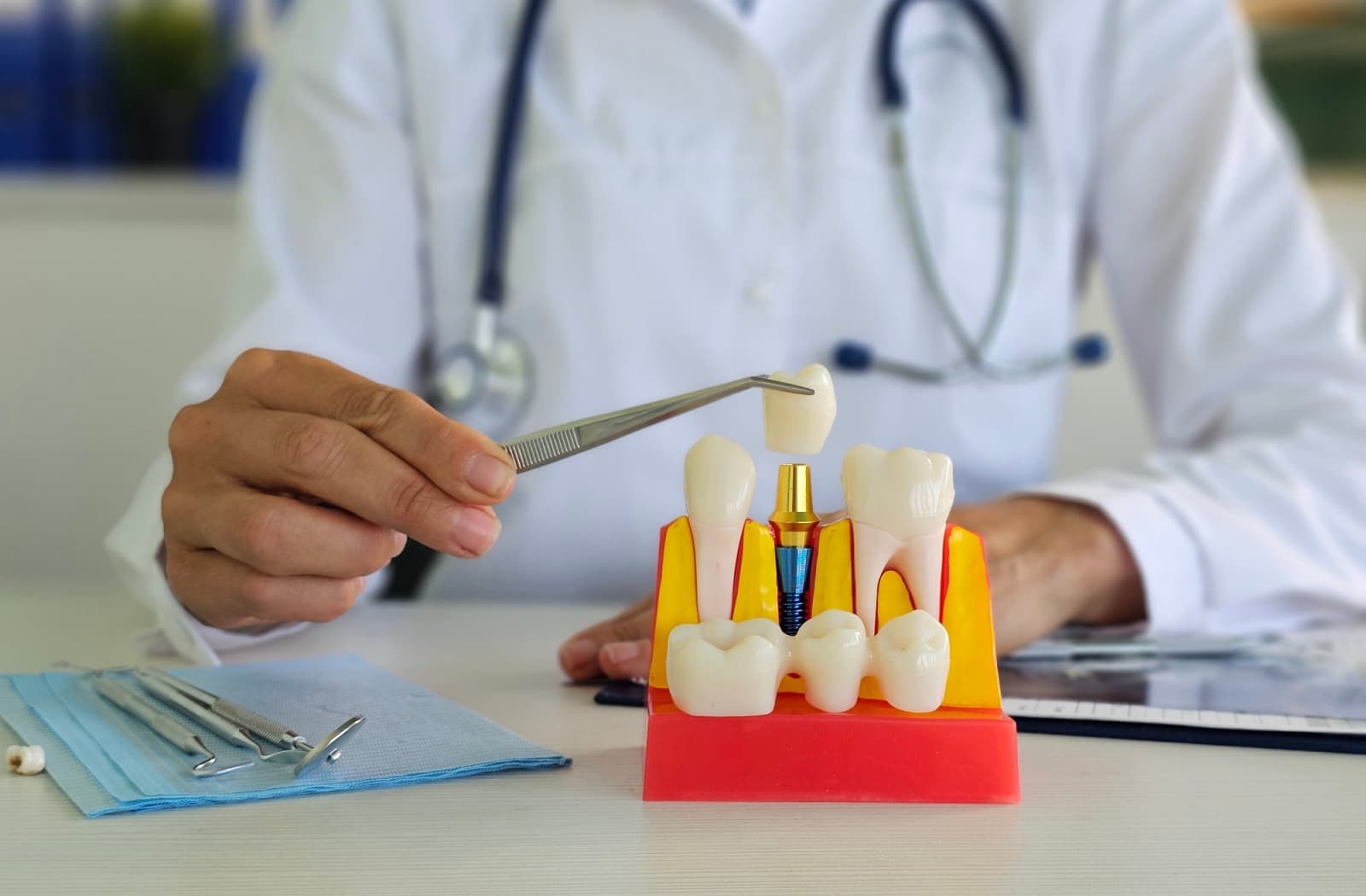Dental crowns restore the health, strength, and beauty of damaged teeth, offering both functionality and aesthetics. However, time can be a key factor when it comes to restoring your smile with a dental crown, and you deserve to get your smile back without having to wait too long.
The process of getting a dental crown typically takes two appointments over the course of a few weeks, although advancements like CEREC technology make same-day crowns an option for many.

What Is a Dental Crown?
A dental crown is a custom-made cap designed to entirely cover a tooth, restoring its original shape, size, and strength. It's typically recommended when a tooth has sustained significant damage due to decay, trauma, or after a root canal.
Crowns not only repair a tooth but also enhance its appearance. Modern crowns are made with materials like porcelain, ceramic, metal alloys, or zirconia, providing both durability and a natural appearance.
When Are Dental Crowns Recommended?
Dental crowns address a wide range of dental issues, making them one of the most versatile restorative options available. They are often used to:
- Strengthen weakened teeth: Protect cracks or fractures by reinforcing the tooth's structure.
- Restore damaged teeth: Regain the functionality of chipped, broken, or decayed teeth.
- Protect teeth with large fillings: Prevent further cracking or breaking when a large portion of the tooth is missing.
- Enhance appearance: Cover discoloured or misshapen teeth for a beautiful, uniform smile.
- Cap dental implants: Serve as the visible portion of a tooth implant, restoring the look and function of natural teeth.
Whether your concern is functional or cosmetic, a dental crown can be an effective solution tailored to your needs.
Types of Dental Crowns
The material and type of crown you choose play a significant role in both the timeline and durability. Here are the most common types:
- Metal crowns: Metal crowns, made from gold, silver, or base metal alloys, are incredibly durable and resistant to wear. While they may lack aesthetic appeal for visible teeth, they're a popular choice for molars due to their strength.
- Porcelain/porcelain-fused-to-metal crowns: Offering a natural-looking appearance, porcelain or porcelain-fused-to-metal crowns closely mimic the colour and texture of real teeth. These crowns are ideal for front or highly visible teeth, though they are slightly more prone to chipping compared to metal.
- Zirconia crowns: Zirconia crowns combine durability and aesthetics. One of the toughest materials used in dentistry, zirconia is twice as strong as porcelain. It resists fractures, making it particularly useful for teeth that experience high chewing forces, like molars. Using CEREC technology, they can even be made in the office for a quicker turnaround.
How CEREC Technology Redefines Dental Crowns
Most traditional dental crowns take two visits to complete. During the first visit, your dentist will prepare your tooth. This involves cleaning the area, shaping the tooth, and taking an impression. A temporary crown will then be placed while your permanent crown is created in a dental lab. Your second visit, typically two to three weeks later, will involve placing and securing the final crown.
With CEREC, the process is much faster. Your dentist can use CAD/CAM technology to design, manufacture, and place your custom crown in as little as a single appointment. This option is perfect for those with busy schedules or who want quicker results. What's more, the precision that comes from using 3-D imaging helps dentists create a restoration that fits your smile comfortably.
Instead of trading quality for speed, you can have both.

How Long Do Dental Crowns Last?
The average lifespan of a crown is about 10 years. With proper care, this could increase to 15 years or longer. However, this depends heavily on factors like:
- Oral hygiene: Regular brushing, flossing, and professional cleanings maintain both crown and gum health.
- Diet: Avoid chewing on hard foods like ice or sticky candies that can damage your crown.
- Teeth grinding: Using a nightguard can help protect your crown if you clench or grind your teeth during sleep.
- Material: Different materials have different durability. For example, a material like zirconia can last 15 years.
Caring for Your Crown After Placement
A dental crown can serve you for over a decade, but only with proper care. Here's how to get the most out of your new restoration:
- Brush and floss regularly: Pay special attention to the gumline surrounding your crown.
- Avoid damaging habits: Refrain from chewing on non-food items or opening packages with your teeth.
- Use a nightguard if necessary: Protect your teeth from grinding damage during sleep.
- Visit your dentist regularly: Routine appointments allow your dentist to inspect your crown and address any issues early.
By practicing these habits, you'll not only protect the longevity of your crown but also maintain excellent overall oral health.
Meet Your Smile, Restored & Protected
A dental crown is more than just a treatment. It's an investment in your comfort and confidence. We know there's no time to waste. That's why de Man & Höediono Dentistry is proud to offer the convenience of a same-day CEREC crown. Don't wait to restore your smile.
If you're curious if CEREC 1-day crowns will work for you, we're ready to talk. Contact us today to book your consultation and take the first step toward a healthier, more radiant smile!